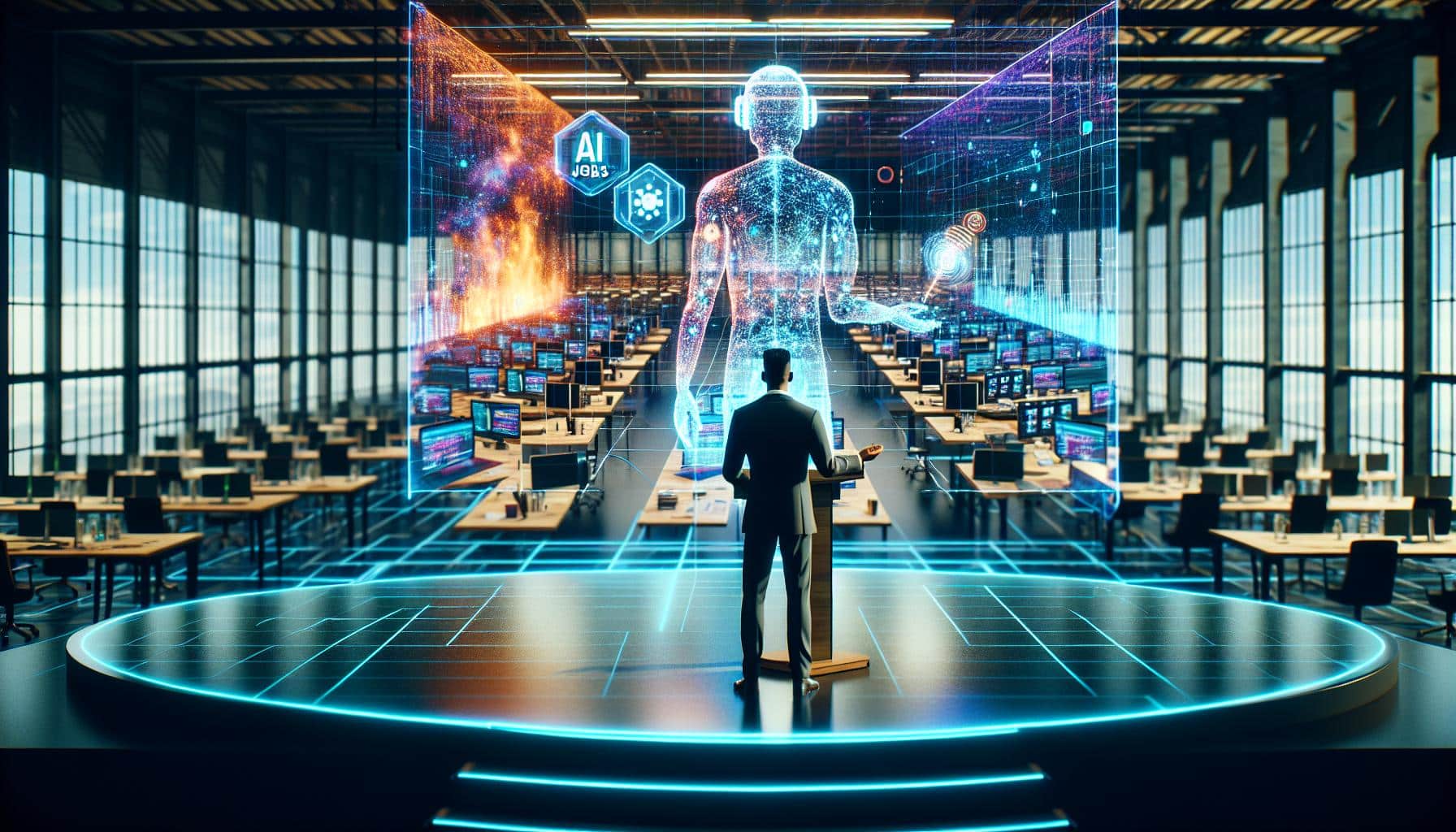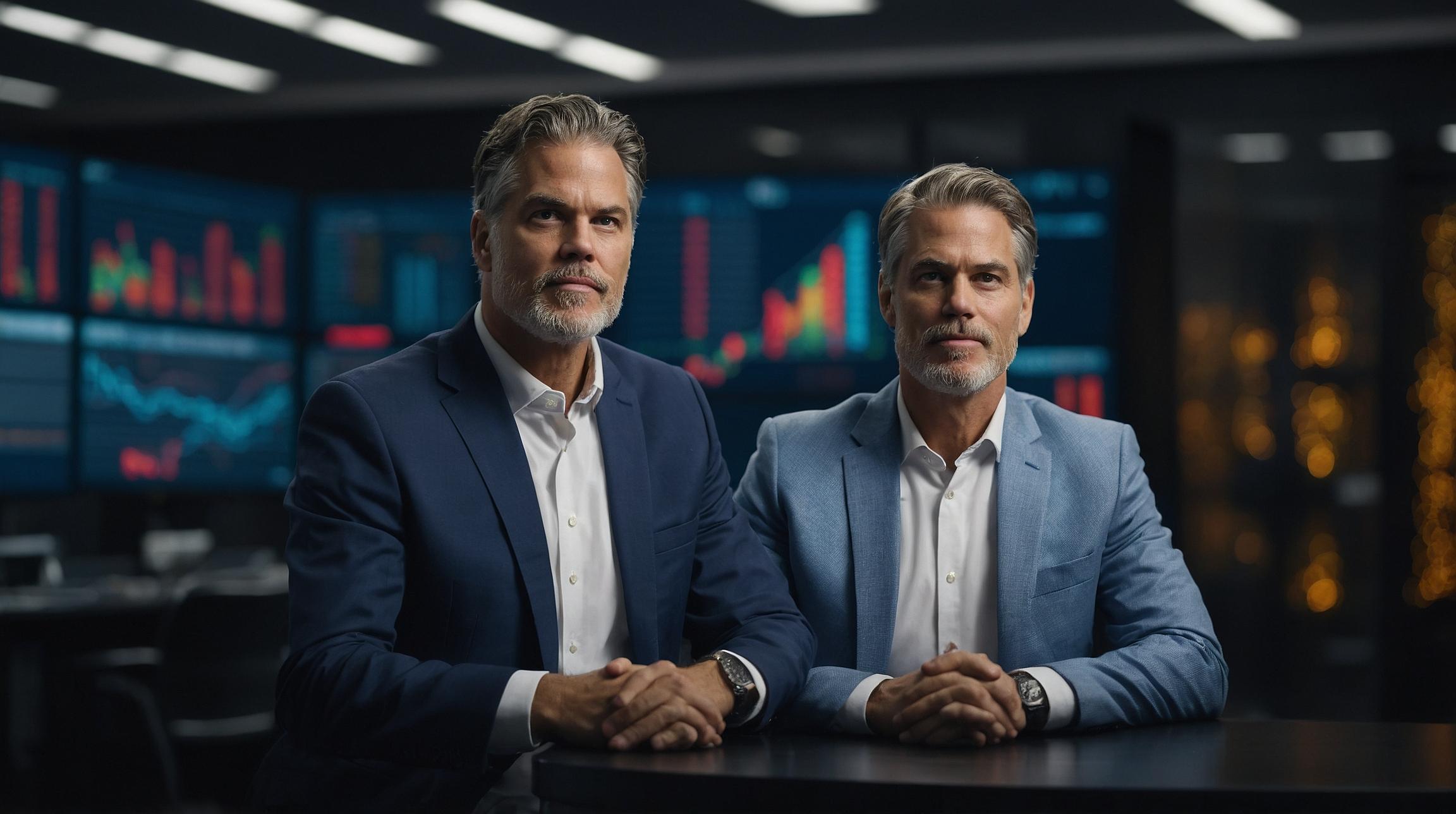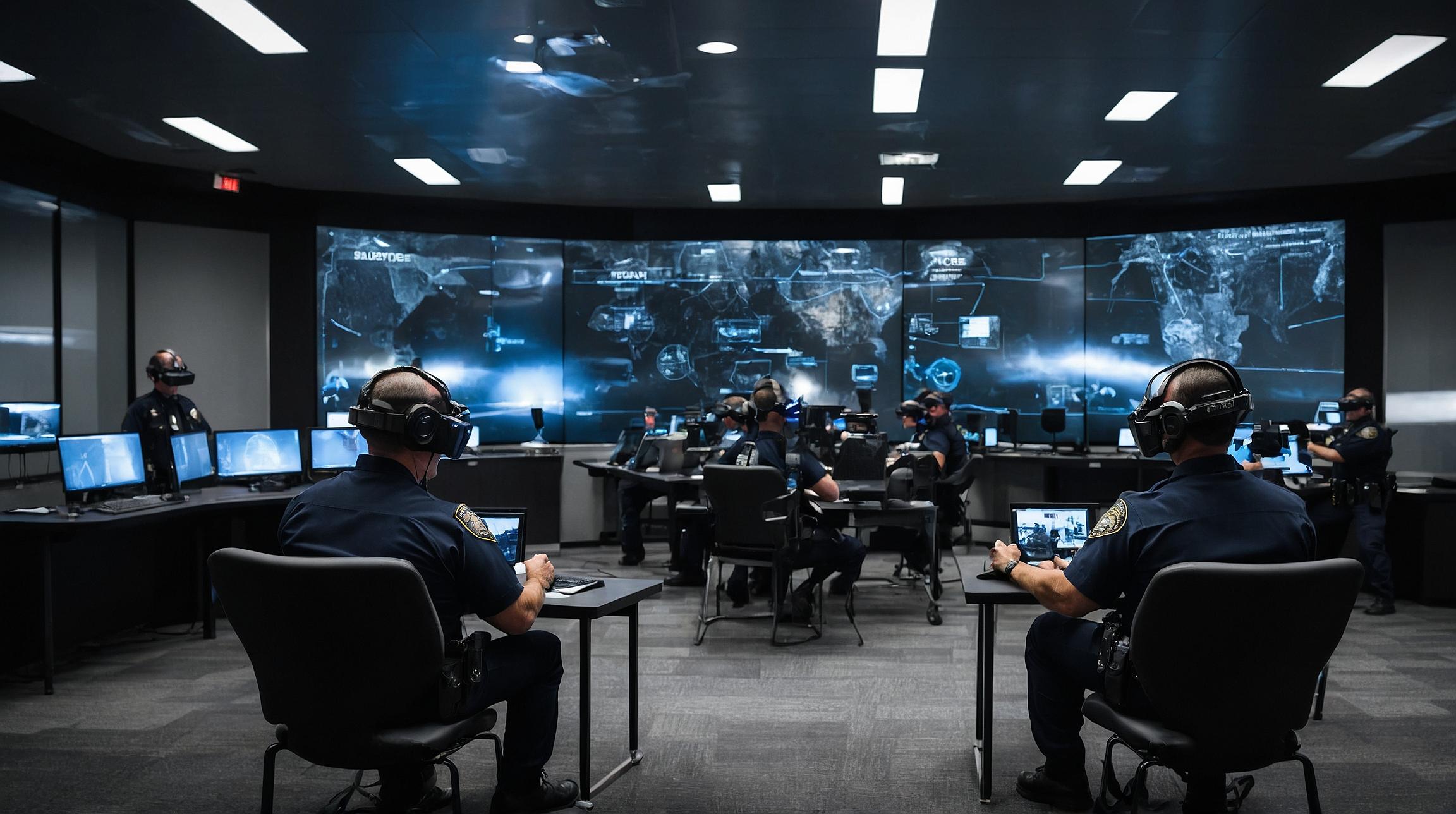Artificial Intelligence (A.I.) Creates Concerns and Questions for the Future Workforce
CEOs Warn About Long-Term Disruption as Generative A.I. Advances into Mainstream
With U.S. consumers and executives expressing concerns about the effects of artificial intelligence (A.I.) in the workplace, the CEO of one of America’s leading consulting firms has issued a warning about potential long-term disruption. Paul Knopp, CEO of KPMG, discussed these concerns during an interview with FOX Business’ Maria Bartiromo at the World Economic Forum in Davos, Switzerland. Knopp acknowledged the inevitability of job disruption in the long term, but also highlighted that currently, the workforce remains flexible, with generative AI impacting jobs to a lesser extent than anticipated.
Business Leaders Acknowledge High Impact of Generative A.I. on Organizations
According to a recent survey by KPMG, 65% of business executives believe that generative A.I. will have a significant impact on their organizations within the next three to five years. The concept of generative A.I. involves the generation of diverse forms of media, such as text, images, and audio, based on the user’s input. IBM recognizes generative A.I. as a deep-learning model, capable of learning complex coding languages. These findings indicate that business leaders are increasingly aware of the potential of generative A.I. to transform their operations.
CEO Knopp Remains Optimistic About the Resilience of the Labor Market
While acknowledging the potential impact of technological advancements on the labor market, KPMG CEO Paul Knopp remains optimistic about the ability of the economy to absorb these changes over time. Knopp highlighted the net job growth experienced over the past 25 years, despite the implementation of various emerging technologies. He emphasized that as new technologies emerge, the nature of work may change, but opportunities for job growth and the improvement of mental health are likely to arise due to the automation of mundane tasks.
International Monetary Fund Raises Concerns About Job Displacement
Kristalina Georgieva, the managing director of the International Monetary Fund (IMF), echoed concerns regarding the potential displacement of jobs with the rise of A.I. During a conversation at the World Economic Forum in Davos, Georgieva stated that a recent report from the IMF estimated that 60% of global jobs could be impacted by A.I. in the near future. The report serves as a warning, highlighting the need to prepare for the potential effects of A.I. on the workforce. However, Georgieva also emphasized that this presents an opportunity for higher growth if managed effectively.
Opportunities and Challenges Await as the Future Workforce Faces an A.I. Tsunami
The rapid advancement of A.I. technology poses both opportunities and challenges for the future workforce. As mundane tasks become automated, individuals may have the opportunity to engage in more valuable and fulfilling work. However, the introduction of A.I. also brings uncertainty, disruption, and potential job displacement. It is vital for individuals, organizations, and policymakers to navigate these challenges and seize the opportunities presented by A.I. to ensure sustainable economic and societal growth. The current discourse at the World Economic Forum in Davos reflects the urgency for proactive action to address the imminent arrival of the A.I. tsunami.
Analyst comment
Positive news: CEOs and business leaders are acknowledging the potential of generative AI to transform their operations and are optimistic about the resilience of the labor market to absorb these changes over time. Opportunities for job growth and improved mental health are expected due to the automation of mundane tasks.
Negative news: The International Monetary Fund raises concerns about potential job displacement, estimating that 60% of global jobs could be impacted by AI. This highlights the need to prepare for the potential effects of AI on the workforce.
Neutral news: The rapid advancement of AI technology poses both opportunities and challenges for the future workforce. It is vital for individuals, organizations, and policymakers to navigate these challenges and seize the opportunities presented by AI for sustainable economic and societal growth.













